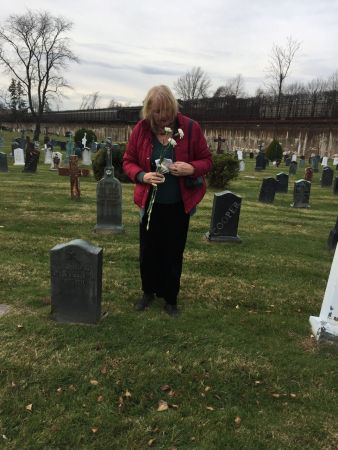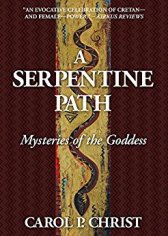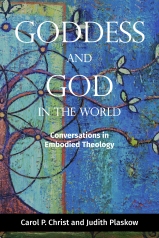 My father was a very intelligent man who tested “genius” in the army. Drafted into the army at a young age, he decided not to take advantage of the “GI Bill” that would have paid for his college education after the war, because he already had a family to support. My father was lucky not to have served in combat. Scheduled for the invasion of Japan, he served in its occupation. I once asked him if he saw the devastating effects of the atomic bombs that the United States dropped on Japan. Instead of answering directly, he said dismissively, “I suppose you think I was traumatized.” I imagine that on some level he was, because unlike many WW II veterans he never spoke about his time in the army, and most tellingly, he was the only member of his unit not to sign up for the “extra pay” to be earned in the reserves, and thus the only one not to be called up to serve in Korea. Although he never questioned the US government’s right to wage war, he always told me, “war is hell.” Though he was not at all pleased when I became active in the anti-war movement, I found some of the roots of my opposition to war in my father’s refusal to glorify it.
My father was a very intelligent man who tested “genius” in the army. Drafted into the army at a young age, he decided not to take advantage of the “GI Bill” that would have paid for his college education after the war, because he already had a family to support. My father was lucky not to have served in combat. Scheduled for the invasion of Japan, he served in its occupation. I once asked him if he saw the devastating effects of the atomic bombs that the United States dropped on Japan. Instead of answering directly, he said dismissively, “I suppose you think I was traumatized.” I imagine that on some level he was, because unlike many WW II veterans he never spoke about his time in the army, and most tellingly, he was the only member of his unit not to sign up for the “extra pay” to be earned in the reserves, and thus the only one not to be called up to serve in Korea. Although he never questioned the US government’s right to wage war, he always told me, “war is hell.” Though he was not at all pleased when I became active in the anti-war movement, I found some of the roots of my opposition to war in my father’s refusal to glorify it.
I inherited my father’s intelligence, and he was pleased when I started bringing home “A’s.” As was typical in families at the time, he always told me that I could turn “B’s” into “A’s,” and for the most part, I did. I did not experience this response as criticism, but rather as a deep confidence that I could do even better. When I was about fourteen, my father asked me what I wanted to do when I grew up. I responded that I would have liked to have been a stewardess but I was already too tall, so, I supposed, a secretary. My father replied, “you can do better than that, you will go to college, and you will become a teacher.” A few years later when I was about to graduate Valedictorian from my lower middle class high school where no one spoke of private or out-of-state colleges, my parents were called into the guidance counselor’s office. She told them that with my grades and scores, I should not be considering junior college or state college, because I could get into almost any college in the country. Although my mother did not want me to leave home, my father allowed me to apply to Stanford. As I did not receive a full scholarship, he and my mother made many financial sacrifices for my education. Though he did not support my decision to apply for graduate school in Religious Studies, my father was proud that I won two fellowships. When I came home for Christmas after my first semester at Yale and explained to him that I was being told I would never finish my studies and was being treated so badly that I too had my doubts, he responded simply, “You started it, and now you will finish it.” It would have been easy for him to have said, “I told you so,” but instead he expressed his certainty that I could and would get my Ph.D.
When I was in my teens, I was taller than all of the other kids and beanpole. In those years I saved my babysitting money to buy fabric and patterns and made all of my own clothes. Most ready-made clothes did not fit me—oh how I wanted a light blue Oxford cloth blouse with long sleeves and a knife-pleated cotton duck white skirt, but my mother always told me the sleeves were too short and skirts were above my knees. Every time I finished an outfit, I was asked to model it for my father. He always encouraged me to stand up straight. “If you stand up straight you will look beautiful and tall, and if you stoop, you will still be tall, but not so beautiful.” To this day people comment on how lovely and unusual it is to see a very tall woman who walks proud.
My father was an insurance agent who, from the time I was ten, owned his own business. When speaking of his work, he often calculated insurance rates in his head. As soon as I began to receive an allowance, he taught me not to “waste” it on candy, but to save it for something I really wanted. The same with the money I earned from babysitting, beginning when I was ten and a half. First I saved it for dolls and later for cloth. When I grew up, I saved the money I earned (and the money I inherited) to buy a house and “for a rainy day.” Because it is easy for me, I am usually the one to calculate how to split a bill at a restaurant. Over the years I have been surprised to learn how many of my friends never learned how to manage money.
When my mother died twenty-six years ago, my father had already considered how he intended to pass on their estate. While many of my friends did not inherit anything until both parents had died, my father was well aware that the tax laws of the time allowed each child to inherit a certain sum of money tax-free at the death of each parent. The will he and my mother signed left each of my brothers and me a significant amount of money when our mother died. I inherited enough to make my life comfortable—and luckily so, as Greece’s subsequent entry into the Eurozone raised prices where I live substantially. Because of my father’s careful planning and generosity, I was able to buy and remodel the house that gives me great joy and do not have to worry about the future. As my relationship with my father continued to be difficult, I was grateful that he was not holding his money over me as an inducement to do his bidding.
Though I did not visit my father during the last decade of his life for reasons that I have written about elsewhere, we were able to share a joint interest in the research I was doing on our family. My father mastered email in his late 80s in order to communicate his memories with me, and he was delighted to receive every piece of new information I discovered about our common ancestors. We were both thrilled that a researcher discovered our Christ origins in Unterpreppach, Lower Bavaria in the spring of 2016 when my second cousin Bill Christ and I were searching for our ancestral roots in Germany. When I found the Christ family graves in Most Holy Trinity Roman Catholic Cemetery in Brooklyn in the winter of 2016, I sent photographs to my father, and he was deeply moved. At the time I made a promise to myself that I would add markers to the graves at some point in the future. Now that my father has died, I have redoubled my commitment to do so. They will be one of first things I purchase with the money I receive as my final inheritance from my father.


Carol at the unmarked grave of Thomas Christ March 11, 1812-December 11, 1863 of Unterpreppach and Anna Maria Hemmerlein Christ August 5, 1821-February 14, 1907 of Stettfeld and Gresselgrund in Bavaria and their son Conrad Christ November 20, 1850-July 1860. The grave of their second son George Christ February 10, 1863-March 25, 1895 and his son Frederick Christ February 3, 1892-April 30, 1896 is marked by two white carnations (left center). Photos by Joyce Zonana.
In memory of John Anthony Christ, February 25, 1919-July 6, 2017
* * *

 Carol’s new book written with Judith Plaskow, is Goddess and God in the World: Conversations in Embodied Theology.
Carol’s new book written with Judith Plaskow, is Goddess and God in the World: Conversations in Embodied Theology.
FAR Press recently released A Serpentine Path: Mysteries of the Goddess.
Join Carol on the life-transforming and mind-blowing Goddess Pilgrimage to Crete. Sign up now for 2018! It could change your life!
Carol’s photo by Michael Honegger


Hmm..is being traumatized synonymous with being weak? My mother’s twin brother was in the B.C.O.F. in
Japan. He was masterful at traumatizing the rest of us, whenever someone died he would create conflict. I suspect if feared melting if he cried.
LikeLike
Yes I presume my father was thinking that being traumatized means being weak, vulnerable, or in need of help. Which of course he would not have wanted to admit to being.
LikeLike
Sun Pisces men, goddess love ’em.
LikeLike
We were both lucky to have good fathers. Mine was too ill (arthritis) to serve in World War II, so he became what might be called a Home Guard, i.e., he had white helmet and vest was if St. Louis had been invaded, I guess he would have been on the front lines. My parents encouraged me to go the college and graduate school, and, like you, I learned to sew, too. But I wasn’t very good at it. They were proud of my good grades in subjects like English and history.
LikeLike
My father’s behavior to me was very good in some ways and extremely harmful in others. Being able to keep both in focus is what enables me to be whole.
LikeLike
This is so beautiful! Thank you.
LikeLike
I found this a very moving and loving tribute to your father, Carol. I’m left with the feeling that each of us has a huge amount of love along with the heavy baggage we often carry – not because we desire it but because it’s been thrust on us by history, society, culture. As I get older the love and care my mother had for me becomes clearer through the haze of rejection and dismissal. Perhaps this is the time of life that I mend the cracks with gold! Life seems very strange to me sometimes!
Thank you for sharing these times your father was encouraging, even demanding that you “be all you can be”. The world is richer for it.
LikeLike
Yes I would never have written books that changed the world nor would I be leading Goddess Pilgrimages to Crete if my father had sympathized with my pain (he didn’t) and encouraged me to drop out of graduate school and return to the original plan of becoming a school teacher. That is true!
LikeLike
One of the most remarkable aspects of aging is that we see our parents in a different light and can truly appreciate them as the people they were, and for the gifts they gave us. Your father would be proud to hear his story being told through this lens.
LikeLiked by 1 person
Maybe so, but he would not be too happy about two of my other recent posts. I do appreciate my father in many ways, but that does not negate the harm he did to me and one of my brothers.
LikeLike
I have the same kinds of feelings that you do Carol about both of my parents. Both did me great harm – but aging allows me to have days when something in me is able to move beyond – if only for a moment.
LikeLike
My father was a difficult person, too. But I inherited much of his love of life, and a good thing, too, because my mother was pretty cold and distant. What I learned at a very young age from both of them was the value of education. They each escaped poverty because of it. As a result, three out of the four of us sisters has a Ph.D.
LikeLiked by 1 person
Thanks Carol, you seem to be facing your loss in profoundly brave and creative ways.
A highly respected Japanese poet from long ago, Otagaki Rengetsu (b. 1791), lived as a recluse roaming the change of the seasons, and thus facing her loneliness in accord with her journey as a Buddhist nun and nature poet. Here is her 5-line Japanese waka, celebrating this time of year, at the beginning of December, when I too might have been depressed this morning, but instead, learning from Rengetsu’s poetry — no matter how fierce the winds, but nevertheless lifting herself up — and thus lifting me up too — she says:
Last night’s storm was fierce
As I can see by this morning’s
Thick blanket of snow:
Rising to kindle woodchips
In lonely Shigaraki Village.
LikeLiked by 1 person
Hugs!
LikeLiked by 1 person
I thank you from my heart for sharing this beautiful contribute to your father. As children we never think about the issues our parents had to deal at their time, yet as we get older and wiser we appreciate their teachings that were meant to guide us through our own lives.
LikeLike
To truly heal we need to move beyond the good/bad binaries. Many of us had parents who harmed us in some ways and helped us in others. To be able to see and acknowledge both is the key I discovered. On the other hand when I focused only on the good aspects of the relationship, I continued to be hurt when “bad” behaviors reoccurred. This piece is intended to be read alongside the earlier piece which is linked as the reason I did not visit my father for more than 10 years, including not while he was ill or before he died.
LikeLike
Yes, I wholeheartedly agree, as you wrote, “Being able to keep both in focus is what enables me to be whole.”
Also, I think, your parents and mine were of a different generation. Societies have changed so rapidly over their lifetimes and ours. Many ways of being and thinking that were formed in their youth made sense in that time, were calibrated to that time, and the effects might have been softer if society had not changed so quickly. Modernity advances, not always bringing progress for the good. I find it helpful to think of my parents’ behavior in different historical contexts, and look for the eternal or universal good intentions or fears in it. Light and darkness!
Thank you for sharing your loving and honest thoughts of your father. He sounds like a wonderful person.
LikeLike